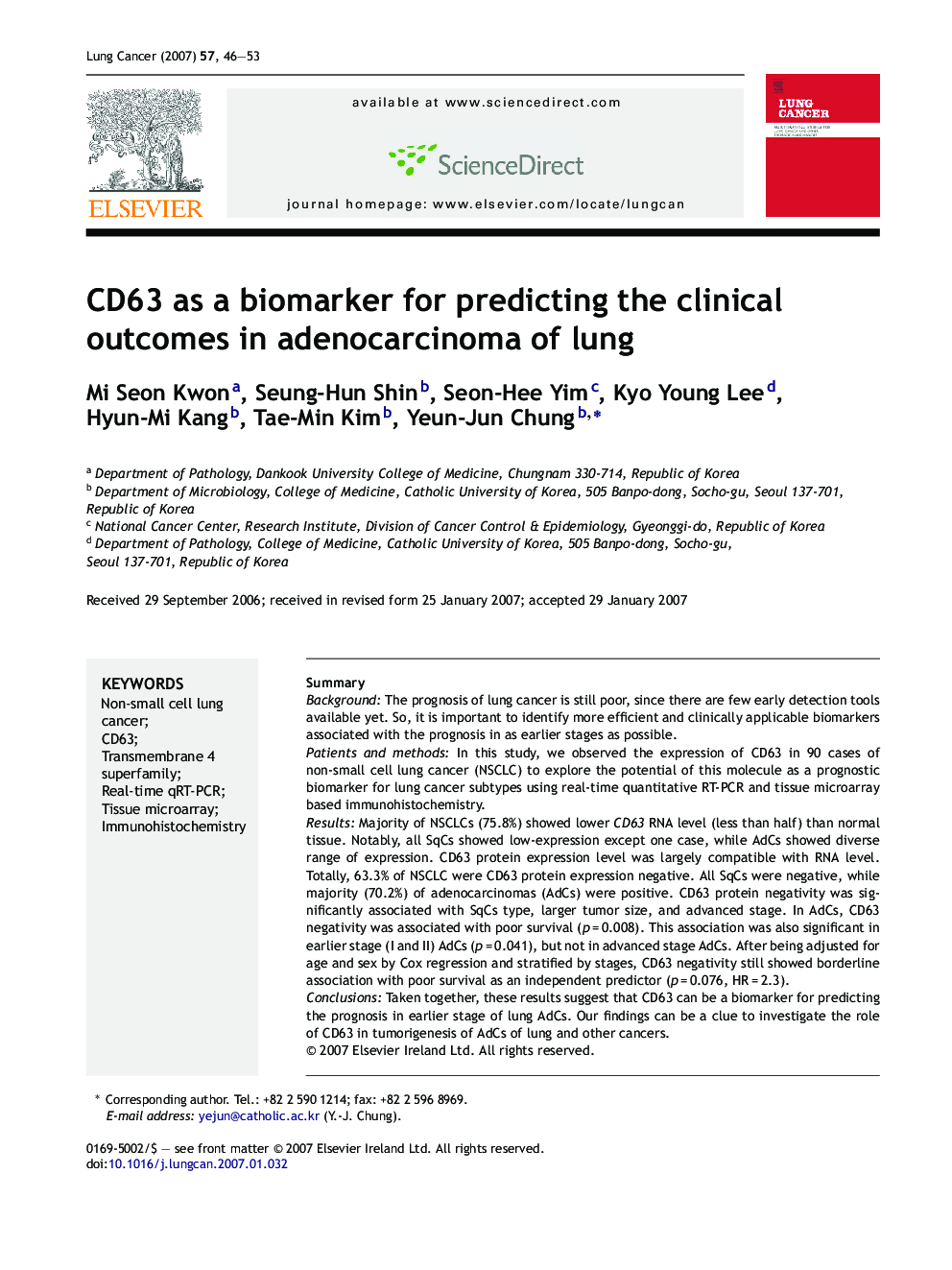| Article ID | Journal | Published Year | Pages | File Type |
|---|---|---|---|---|
| 2143768 | Lung Cancer | 2007 | 8 Pages |
SummaryBackgroundThe prognosis of lung cancer is still poor, since there are few early detection tools available yet. So, it is important to identify more efficient and clinically applicable biomarkers associated with the prognosis in as earlier stages as possible.Patients and methodsIn this study, we observed the expression of CD63 in 90 cases of non-small cell lung cancer (NSCLC) to explore the potential of this molecule as a prognostic biomarker for lung cancer subtypes using real-time quantitative RT-PCR and tissue microarray based immunohistochemistry.ResultsMajority of NSCLCs (75.8%) showed lower CD63 RNA level (less than half) than normal tissue. Notably, all SqCs showed low-expression except one case, while AdCs showed diverse range of expression. CD63 protein expression level was largely compatible with RNA level. Totally, 63.3% of NSCLC were CD63 protein expression negative. All SqCs were negative, while majority (70.2%) of adenocarcinomas (AdCs) were positive. CD63 protein negativity was significantly associated with SqCs type, larger tumor size, and advanced stage. In AdCs, CD63 negativity was associated with poor survival (p = 0.008). This association was also significant in earlier stage (I and II) AdCs (p = 0.041), but not in advanced stage AdCs. After being adjusted for age and sex by Cox regression and stratified by stages, CD63 negativity still showed borderline association with poor survival as an independent predictor (p = 0.076, HR = 2.3).ConclusionsTaken together, these results suggest that CD63 can be a biomarker for predicting the prognosis in earlier stage of lung AdCs. Our findings can be a clue to investigate the role of CD63 in tumorigenesis of AdCs of lung and other cancers.
